Great commanders. Alexander the Great
The early years of the heir to the Macedonian throne were overshadowed by the divorce of parents. And after the second marriage of his father to another woman, Alexander fell out with Philip. In 336 BC er shortly after the mysterious death of Tsar Philip Alexander, who at that time turned 20 years old, ascended the throne, and the Greeks called him the hegemon of the Hellenic League.
The young king considered the confrontation with Persia as the main competitor for influence in Asia Minor to be one of the main directions of the foreign policy of his state; therefore, great attention was paid to preparations for a military campaign against this country. Despite the fact that he inherited from his father the strongest army of ancient Greece, Alexander understood well that it was impossible to defeat the great power of the Achaemenids without the combined efforts of the whole of Hellas. Therefore, Alexander took care of the creation of a pan-Greek alliance and the formation of a combined Greek-Macedonian army. The elite part of the army consisted of the bodyguards of the king and the Macedonian royal guards, and the basis of the cavalry were horsemen from Thessaly. Marines were protected by heavy bronze armor, and their main weapons there was a sarissa - the famous Macedonian spear. Alexander significantly changed the tactics of the so-called Macedonian phalanx, developed by his father, using the angular construction, which allowed him to concentrate forces during the attack on the enemy’s right flank, which is traditionally weaker in the armies of that period. In addition to heavy infantry in the army of Alexander the Great, there were numerous lightly armed auxiliary units from various Greek cities. In general, the number of infantry reached 30 thousand people, the cavalry consisted of 5 thousand people. Despite the relatively small number of troops, the Greek-Macedonian army consisted of well-trained and armed fighters.
Before the start of the long-awaited campaign to the East, in the spring of 335, the young king made a throw to Thrace, suppressing the outbreak of the uprising. In Greece, the long absence of the ruler caused the spread of rumors about his death, and rebels from Boeotia surrounded the Macedonian garrison in Thebes. Upon learning of this, in the fall of 335, the young king struck the Thebans with a sudden blow, seizing and destroying their city. These measures had a frightening effect on the Greeks; as a result, they implicitly recognized his authority, adding to the army of Alexander recruits for the campaign against Persia.
In the 334 year, after Alexander's troops crossed the Hellespont, a war began, the purpose of which was to vengeance on the Persians for their reproach over the Greek shrines of Asia Minor.
Initially, Alexander had to fight with the Persian satraps who ruled Asia Minor. In 333, in the battle of the river Granic, the Macedonian army defeated the 60-thousandth Persian army, then Alexander went south, moving along the coast of Ionia. After a long siege, the Macedonians conquered the Persian garrisons in the cities of Miletus and Halicarnassus, other cities voluntarily surrendered to the victor’s mercy. In the spring of 333, Alexander's army occupied Lykia and Pamphylia, in July the Macedonians conquered Paphlagonia and Cappadocia, and in September Cilicia. But the Achaemenid Power possessed colossal human and material potential. And Darius III, having connected the best military units from different parts of his state, set off to meet the Macedonian king. But, despite careful preparation, in the decisive battle of Issus his 100-thousandth army suffered a crushing defeat, Darius himself barely managed to escape, fleeing from the battlefield, and his mother, wife and children were captured. At the beginning of winter 332, the Macedonian army entered Phenicia, besieging Tire. A long siege and bitter assault did their job, and eventually they took the city. A similar fate awaited the people of Gaza.
Alexander decided not to stop at the achieved victory, continuing the campaign. After a successful siege of Tire, the path to Egypt was opened in front of him, and already in the winter of 332-331. Greco-Macedonian army arrived in the Nile Valley. The inhabitants of the states enslaved by the Persians treated the Macedonians as liberators. In order to preserve a stable power in the captured territory, Alexander announced that his father was the Egyptian god Ammon, whom the Greeks identified with Zeus, thanks to which Alexander, in the eyes of the Egyptians, acquired the right to power and the title of Pharaoh by the law. Another method of strengthening power in the conquered countries was the settlement of these territories by the Greeks and Macedonians, thus the Greek language and culture were spread over vast territories. Migrants usually settled in specially built new cities, most often called the name of Alexander. The most famous is based in Egypt, the city of Alexandria. The successful actions of Alexander’s army in Egypt deprived the Persian fleet of the only remaining support base.
To fight the Persians and Spartans who landed on Crete, Alexander sent a squadron led by Amphoter. Antipater, Alexander's vicar in Macedonia, was at that time busy suppressing the uprising of the Spartans in the Peloponnese. After the victory over the Spartans, Antipater sent significant reinforcements to Egypt, which joined the main body of the Macedonian expedition. In the spring of 331, Alexander left Egypt, going to Syria. In September, having crossed the Euphrates, his army crossed Mesopotamia and, sticking to the left bank of the Tigris, reached the village of Gavgamely. At this place they were to meet with the huge army of Darius III, who was waiting for them, which, according to ancient historians, reached a million people.
The decisive battle took place on 1 on October 331, near Gaugamela. After a crushing defeat, Darius III, once again fleeing, went to Ecbatana. In the meantime, Alexander did not encounter any resistance in his way and managed to occupy Babylon, Persepolis, Susa and Ecbatana without a fight. Briefly staying at Ecbatans, Alexander allowed all the Greek allies who wished this to go home. His plans included the creation of a new ruling class of Persians and Macedonians, he also paid attention to the local nobility, causing discontent of his comrades.
Having a little rested, Alexander's army again set out on the march. Passing Suzianu, the Macedonian warriors captured Persia, burned the palace of Darius in Persepolis, and in July the Macedonians entered the Media. Frightened by the approach of the Macedonian army, Darius III, accompanied by a small detachment of horsemen, went to Bactria. By the order of the satrap of Bactria Bess, Darius III was killed, after which Bess, who proclaimed himself Persian king, was forced to go on the run, avoiding persecution. By decree of Alexander, the last Persian king was buried in Persepolis with the appropriate pomp to the king. Thus, the Achaemenid power ceased to exist, and Alexander was proclaimed "the king of Asia." After that, the Macedonians occupied Parthia and Hyrcania. After the victory over the satrap Areia Satibarzan, the territories of Drangiana, Gedrosia and Arachosia were attached to the empire of Alexander.
In the 329 year, after crossing the Eastern Iranian areas, Alexander's army arrived in Central Asia, whose inhabitants, under the command of Spitamen, fiercely resisted; this rebellion was suppressed only after the death of Spitamen in 328. Bess was given his closest and he was executed. Sughd resistance was desperate. After the first successes that allowed Alexander to force the Yaksart river to meet with the nomadic tribes of the Saks, the Macedonian led back - there began new performances that lasted until 327.
Alexander tried to pursue a delicate cultural policy, trying to observe the traditions of the local people, put on the Persian royal robes, and also took Bactrika Roxana as his wife. But his desire to adopt the Persian court ceremonial (especially the fall before the king) was rejected by the proud freedom-loving Greeks, despite the fact that Alexander dealt harshly with the objectors. So, he ordered the killing of his own milk brother Klit, who dared to disobey once.
After leaving the territory of Bactria in April 327, Alexander set off on a campaign against India. In a continuous struggle with resisting local residents, overcoming the passes of the Hindu Kush, Alexander's army came to Indus, where they were awaited by the king of the principality of Taksila, who voluntarily submitted to Alexander. In May, Alexander 326, the army came out against King Pora. After winning the battle on the Hydasp River, the Macedonians moved further south. The Indus Valley was also annexed to Alexander's empire. In continuous battles, his army reached the Gifasis River, but here the exhaustion of the forces of soldiers and the need to periodically suppress riots in the army forced Alexander to abandon the campaign, turning to the west.
In the first half of 325 of the year, moving along Hydasp and Indus, in one and the battles Alexander was seriously wounded, but this did not prevent the Macedonians to go to the ocean, where they built ships, on which parts of the troops led by Nearhom should reach the Persian Gulf. The commander Crater set off through Drangiana and Arachosia to suppress the rebellions that broke out again, and Alexander, with the rest of the army, went through the desert of Gedrosia. The union of Alexander the Great's army happened only in January 324, and in February the Macedonians reached the city of Susa. On the way to Babylon, Alexander conquered the tribes who did not submit to him.
In 323, Alexander entered the Babylon with triumph. In this city he received ambassadors from different nations, here he was considering plans for new conquests. After returning to Babylon, Alexander did not forget about the policy of uniting the multi-lingual peoples of his state, rapprochement with the Persian aristocrats involved in government. At the request of Alexander, mass weddings of Macedonians and Persians were arranged, he himself took as his wives two Persians at the same time - Statir and Parisatide, who were the daughters of Darius.
Alexander planned to conquer Arabia and North Africa, but the realization of these plans was prevented by his unexpected death from the bite of the anopheles mosquito. However, among historians there is no consensus about the causes of the death of Alexander the Great. The version of his poisoning is quite common, although she did not find either a confirmation or a refutation.
After Alexander's death, power over a huge state passed to his newborn son and stepbrother Arridea. But the actual power over the empire was in the hands of Alexander's commanders, the Diadochi, who soon began to fight each other, trying to divide the state among themselves.
The great commander of all times and peoples, Alexander the Great, conquered almost the whole world known to him, which, however, turned out to be too big even for him. The empire created by Alexander, the first superpower in the world, proved to be fragile, since the political and economic side of Alexander's gains was weak — for his short life, Alexander still failed to embrace the immense. What can not be said about the enormous influence that Greek culture had on the countries of the East. Hellenism was the first example of global cultural expansion, the results of which determined the entire future course of the world stories. The personality of Alexander of Macedon continues to be the subject of numerous disputes and conjectures, as well as serious scientific research. Only one truth is obvious: Alexander of Macedon is glorified through the ages as a symbol of courage, bravery and a commander's genius.
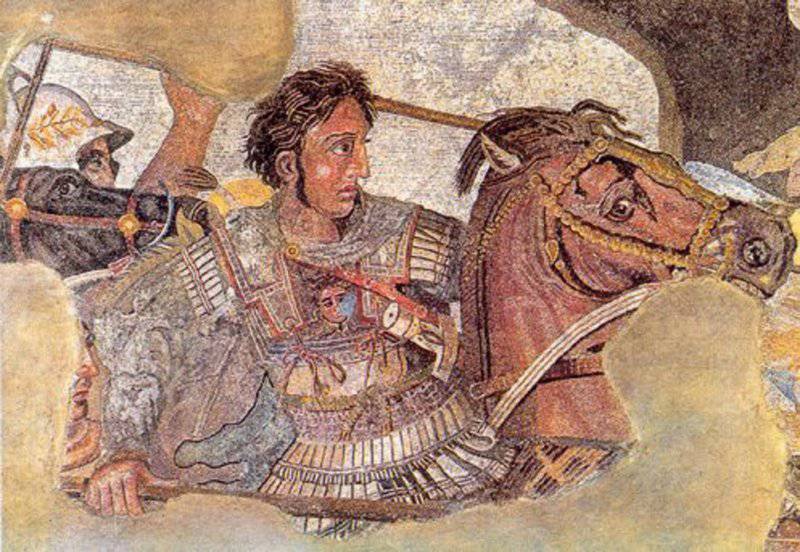
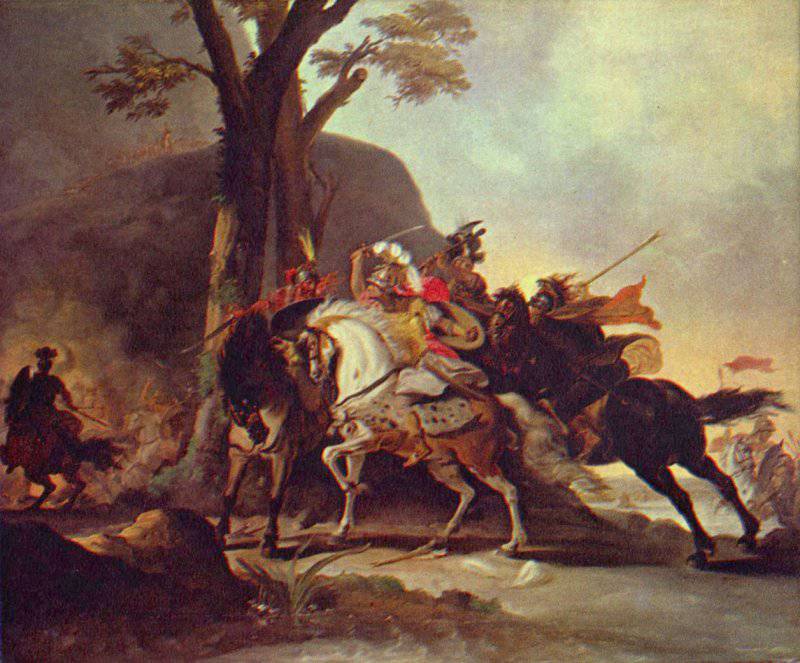
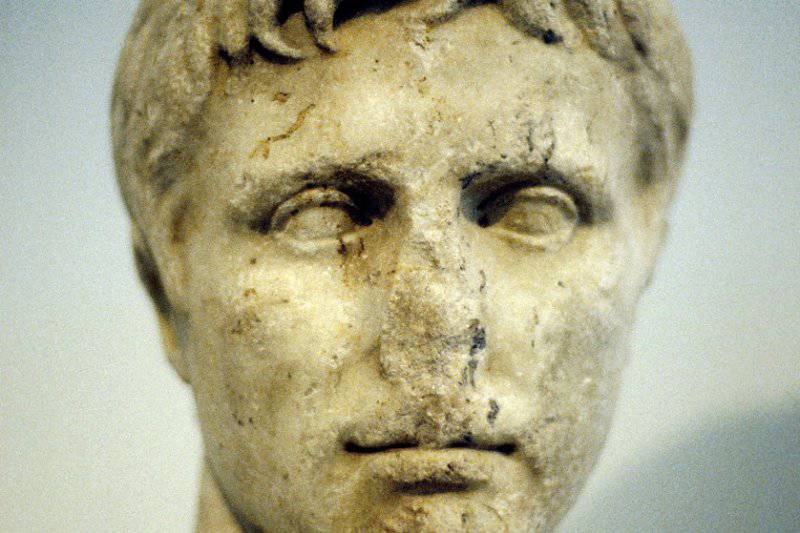
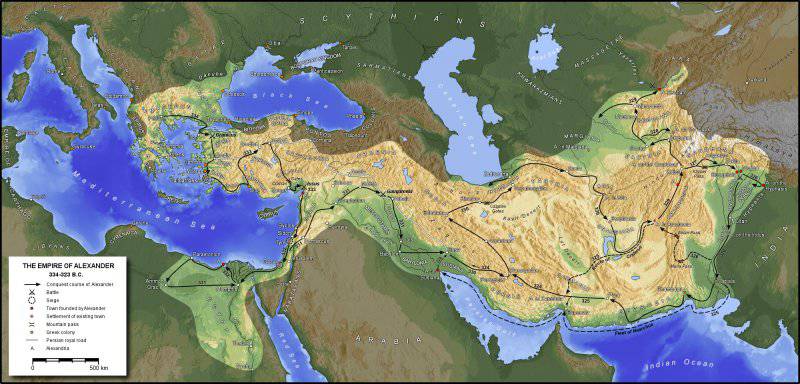
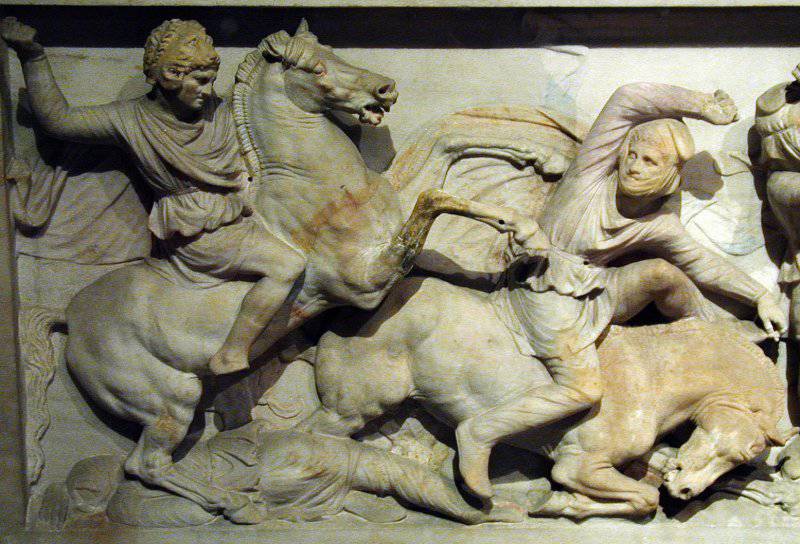
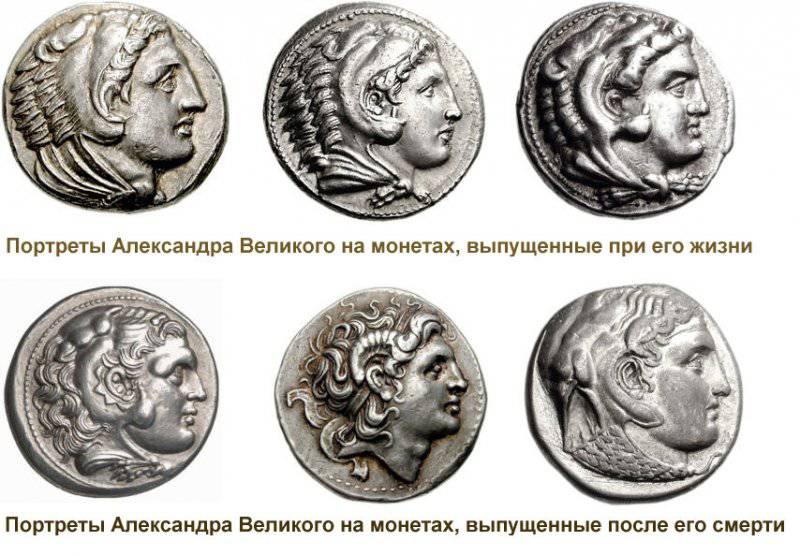
Information